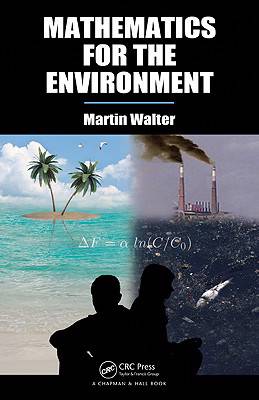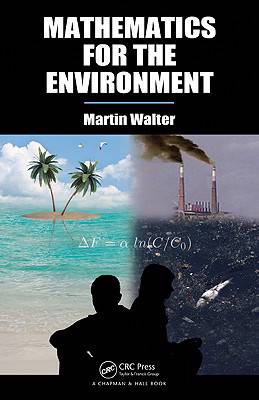
- Retrait gratuit dans votre magasin Club
- 7.000.000 titres dans notre catalogue
- Payer en toute sécurité
- Toujours un magasin près de chez vous
- Retrait gratuit dans votre magasin Club
- 7.000.0000 titres dans notre catalogue
- Payer en toute sécurité
- Toujours un magasin près de chez vous
Description
Mathematics for the Environment shows how to employ simple mathematical tools, such as arithmetic, to uncover fundamental conflicts between the logic of human civilization and the logic of Nature. These tools can then be used to understand and effectively deal with economic, environmental, and social issues. With elementary mathematics, the book seeks answers to a host of real-life questions, including:
- How safe is our food and will it be affordable in the future?
- What are the simple lessons to be learned from the economic meltdown of 2008-2009?
- Is global climate change happening?
- Were some humans really doing serious mathematical thinking 50,000 years ago?
- What does the second law of thermodynamics have to do with economics?
- How can identity theft be prevented?
- What does a mathematical proof prove?
A truly interdisciplinary, concrete study of mathematics, this classroom-tested text discusses the importance of certain mathematical principles and concepts, such as fuzzy logic, feedback, deductive systems, fractions, and logarithms, in various areas other than pure mathematics. It teaches students how to make informed choices using fundamental mathematical tools, encouraging them to find solutions to critical real-world problems.
Spécifications
Parties prenantes
- Auteur(s) :
- Editeur:
Contenu
- Nombre de pages :
- 678
- Langue:
- Anglais
Caractéristiques
- EAN:
- 9781439834725
- Date de parution :
- 18-01-11
- Format:
- Livre relié
- Format numérique:
- Ongenaaid / garenloos gebonden
- Dimensions :
- 157 mm x 236 mm
- Poids :
- 1088 g

Les avis
Nous publions uniquement les avis qui respectent les conditions requises. Consultez nos conditions pour les avis.






